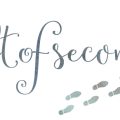
This week, we’re featuring a guest reflection from Sebastian Slovin. As a young child, Sebastian survived the suicide of his father and shares about his extended grief journey.
Living in the Shadow of a Suicide
I was fortunate to have a very privileged upbringing. I grew up in an affluent coastal town in southern California called La Jolla. I spent my early days mixing it up at the beach and in the ocean with my mom, dad, and little sister. Life couldn’t have been better.
My dad died by suicide when I was six years old, leaving my mom, little sister, and me in his wake. When my mom told me the news I remember feeling completely numb throughout my body. I didn’t understand what happened at first. I didn’t know what it meant that he took his own life. All I knew was that he was gone and he wasn’t coming back.
While I had been an outgoing and rambunctious little tyke, in the weeks and months following my dad’s death I grew more and more closed off. To the best of my ability I blocked off, shut out, and pushed down the sadness, anger, and other emotions that were coming up. This was my plan for survival—I was not going to allow anything or anyone in to hurt me again. I did what I needed to do to survive and in the years immediately following my dad’s suicide, this included a lot of isolation, avoidance, and running away.
As I got older and was able to more thoroughly comprehend the weight of my dad’s suicide, things got worse. All sorts of feelings and questions of blame and shame started to come up. I found myself thinking about my dad and his suicide constantly but the problem was I didn’t feel like I could talk to anyone about it. I wrote of this time in my book Ashes in the Ocean, “While I thought about my dad’s suicide a great deal, growing up we [my family] very rarely spoke about the nature of his death. Sure, we alluded to it at times, tiptoeing around the proverbial elephant in the room, but we never spoke about it directly. For many years, we never even said the word “suicide.” Suicide was like our version of Lord Voldemort or He who must not be named in the world of Harry Potter. The word was something that loomed over us. It held great unspoken meaning and represented a whole world of guilt and shame by association. And, while we avoided using the word “suicide” or talking about it, it certainly had a deep impact on my mother, sister, and me. For much of my life, the stigma around suicide was lurking just beneath the surface. I was aware of it, but couldn’t see it clearly.”
“There were so many unanswered questions with my dad’s suicide. And because of the stigma, these questions were often cloaked in guilt and shame. Why did this happen to my dad? Was there something about me that contributed to his death? Is there something wrong with me, with my family? Some of the stigma I felt around suicide certainly came from my own doing and thinking. And at the same time, a good portion of it came from the views of society and those around me.”
I lived for a long time in the shadow of a suicide. The more I tried to avoid dealing with my past the worse things got and the more I felt controlled by it. I felt destined to follow in my father’s fatal footsteps. It wasn’t until I flirted with suicide myself that I realized what I was doing wasn’t working and that something needed to change or I was done.
When I was 17 years old (and in a whirlwind of denial and shame around my father’s suicide) the opportunity for that change presented itself. I had the chance to visit family friends in Perth, Australia. During that trip, I had a conversation with one of my father’s closest friends, John David. It so happened that John David’s father also died by suicide when he was a boy. A fact that I was unaware of prior to this trip.
During our conversation, he shared with me some of the experiences and lessons which he had learned over the years from his father’s suicide. For the first time (since my father died) I felt like I wasn’t alone. When John David shared his experience with me it completely changed my perspective. Here was someone who had been through what I had and come out the other side stronger because of it.
This one conversation allowed me to look at my father’s death in a different light. It was the beginning of a journey of facing my past and learning from it rather than running away. It was the beginning of the process of stepping out of the shadow and into the light.
And, for the first time, I opened up and shared about my dad and the shame I had been holding onto for so long.
I felt more and more like there was something wrong with me and my family because of my dad’s actions. I was also becoming more aware of how much of a taboo the topic of suicide was in my family and in our society/culture. Of course, it was there all along I just hadn’t been conscious of it.
About the Author
In his memoir, “Ashes in the Ocean,” Vernon’s son, Sebastian Slovin chronicles his experience of living in the shadow of a suicide, and his journey to uncover why his father took his own life. A pilgrimage that led him around the world and eventually back to himself. Find Sebastian online:
Website: www.sebastianslovin.com
Amazon Author Profile: https://www.amazon.com/Sebastian-Slovin/e/B078XN8XZL
Facebook: https://www.facebook.com/SebastianSlovinAuthor/
Twitter: https://twitter.com/sebastianslovin
Disclosure
The founders of Our Side of Suicide have not read this book nor received a copy for review. While we do not provide book reviews here, we do feature guest blog posts from survivors of suicide who are willing to share about their experience.





Thank you for sharing your personal journey.
It’s heartbreaking to live in the aftermath of suicide and especially heartbreaking to hear the impact it has had on you or any child left behind. As an adult coping with the loss of my sister of 56 years your story has opened my eyes to the impact suicide has on children left behind. It’s shocking to me that you or any child should ever feel self blame or that somehow your family was different. It seems no one escapes the torment and pain of a loved ones suicide and sadly tip toeing around the topic only complicates our healing process.
I’m glad to know you found someone that was able to share and understand what you were living with and that you have found a way out of the shadow and into the light. Your story will continue to touch many lives. Peace to you.
Thank you for your very kind words. I appreciate you sharing about your sister and I’m very sorry to hear about your loss. I find it helpful to be able to have these types of conversations and to connect with others who have been through this. I think its one of the keys to healing and processing, regardless of what age the loss took place. Thank you for sharing and much love.
Thank you for sharing a piece of your story. Like your family, individuals in my family tiptoe around the word suicide. Eight months ago my grandfather died by suicide, and members in my family still deny themselves the freedom of using the word in the appropriate context.
I commend your bravery and honesty to admit that you also flirted with the idea. In my experience, those who have dealt with such a devastating loss have considered the possibility, which is not an easy thing to admit.
You’re very welcome. I appreciate your support and for sharing. I’m with you in that the word suicide can hold a lot of power over us. I think even more so if it’s avoided or something we feel like we can’t talk about. In my experience, a lot of my struggle came from the concept I had that it wasn’t okay to talk about it. It was incredibly freeing and healing when I began to talk about it and face it. It reminds me of a quote from Saint Paul I used in my book, “Everything is shown up by being exposed to the light, and whatever is exposed to the light itself becomes light.”
I attempted suicide 2x when my children were in elementary school following a very traumatic divoce. Their father and I had joint custody. I was in so much pain I really believed they would be better off without me. After hearing your story I realize this would have devastated them for life. Last Thanksgiving I lost my spouse to suicide. We both were 64 y/o. I was totally blindsided and was in shock for 2 months. Then I was hospitalized for suicidal thoughts. Now I suffer a lot of guilt because my last words to him were unkind. I blame myself for his death and do not feel worthy of all his property and money he left me. I draw close to God and knows He wants me to forgive myself but I haven’t been able to yet. I know it’s a journey. Thank you for sharing your journey, it was helpful. I am truly grateful that I have 2 wonderful loving sons who are here for me.
Hi Sebastian- Thank you for writing your painful yet powerful story growing up. I’m hoping my son will read your book as he is our oldest and only son to survive his fathers suicide. Your journey has helped me have a better understanding on what my son could be dealing with. I’m sorry for your loss of your dad so young. Your mom sounds a bit like me and had to throw it into high gear and keep on moving to keep our now family unit living comfortably enough to get through the next life’s journey and do so with our heads held high no matter how much pain we are living with we must continue to live a life they just could not live anymore for one reason or another. We all have this in common, none of us on this side of suicide truly understand why they made the final choice to leave. I’m comforted knowing that we are not alone in this (yet sad that anyone has to know this) and that my kids someday can honestly live their days knowing how much their dad wanted to stay to watch them grow and love on them like he always did but just wasn’t strong enough. Nothing more to it then that but saying that and feeling that day to day is another story;) one day, one hour on some at a time. Thank you for sharing!